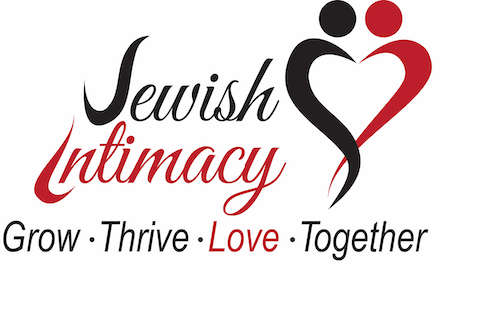My reset button has been pushed and so here I am, sharing some of the insight I have gained over this tekufah (time period) in general, and in my private practice in particular.
As we welcome in the New Year, we are met with the honor and privilege of reconnecting with the Torah from the beginning, with Parashat Bireshit. Bireshit details the Creation of Woman, Man and the World. It encourages thoughts about how humans developed and how we function. This Parsha brings the focus to the beauty and wonderment of the human body and cycles, The bracha of ‘Asher Yatzar’, where we thank G-d for the proper functioning of every opening and tube in our biological system. (Below you will notice a free resource surrounding this idea).
 Here, I would like to draw your attention to an interesting idea related to human functioning. If any of you have heard me speak live, I often challenge my group of Rebbetzins, Kallah Teachers, Yoatzot Halacha, therapists or just ‘regular women’ (no such thing, we are all superwomen) if they have ever been exposed to Torah sources surrounding females and hormones. To this date, I have not yet received a ‘yes’. Which is astounding because the more I practice, and meet with couples and individuals struggling in the areas of Shalom Bayit and/or sexuality, the more it becomes clear to me that there is so much more at play here than what meets the eye. So please! Please keep your eyes open and let me know if you stumble across any worthwhile sources on this topic.
Here, I would like to draw your attention to an interesting idea related to human functioning. If any of you have heard me speak live, I often challenge my group of Rebbetzins, Kallah Teachers, Yoatzot Halacha, therapists or just ‘regular women’ (no such thing, we are all superwomen) if they have ever been exposed to Torah sources surrounding females and hormones. To this date, I have not yet received a ‘yes’. Which is astounding because the more I practice, and meet with couples and individuals struggling in the areas of Shalom Bayit and/or sexuality, the more it becomes clear to me that there is so much more at play here than what meets the eye. So please! Please keep your eyes open and let me know if you stumble across any worthwhile sources on this topic.
Until recently I was convinced that the ‘Curse of Chava’ in this week’s Parsha, was that she was given a more complex system of hormones than Adam. The Torah is not solely referring to labor pains (which are hormone related), but will last a certain amount of hours – compared to Man who must toil in the field daily. How could our curse be limited in time and the male curse be ongoing? That doesn’t seem fair to the men.
There must be something else that the idea ‘והוא ימשל בך’ (and He shall rule over you) is referring to. If you think about it, there is not much different about men and women; not size, strength, intellect. All of that has been proven inaccurate. The one place where it is clear to see gender differences, is where hormones come into play. Yes, males have hormones as well. But we, we women, are gloriously linked to the moon on a monthly repeat cycle known as the menstruation cycle. This is often seen as a struggle, a hard place for women to function. But here I would like to present an idea that will allow for that negative attitude to take a new turn.
I feel that I have been given a goldmine on the hormone topic in the new read ‘Period Power’ by Maisie Hill. With this book, I feel that many of my thoughts/ hypotheses surrounding the topic of female hormones and how they impact the individual, the couple and the family, are put into words. Maisie describes the changes that the female reproductive system goes through on a monthly basis (starting from the first period- age 12, 13….) are real, often consistent, and carry with them positive and negative consequences. She goes on to describe the ‘Cycle Strategy’ thereby explaining how it is possible for women to not only gain understanding and control of their monthly changes, but how we can use them to our advantage. Imagine that!?!
Thank you, Maisie, for bringing this to the limelight…
>> Buy it now from Amazon
There is a cycle- RESPECT IT. Just knowing that there is really something going on, and that you are not ‘nuts’ is so significant. The monthly changes that a woman undergoes could affect mental health, libido, physical strength, appetite, social aspects of life, productivity… I mean, basically, everything in your life. When a person is able to gain insight into her own personal rythm, she is taking care of herself as well as harnessing her powers as a woman. Thereby allowing for higher level functioning. All of the hormones being fired off at all times of the month for different reasons and with differing effects. They are part of you and if understood, can be working FOR YOU and not against you.
Here’s a brief breakdown of the Cycle Strategy (I recommend buying the book for deeper understanding) :
Winter- A need for hibernation. Solitude. Quiet and alone time.
Spring- Getting back out there! Growth!
Summer – Rolling with it
Autumn- Returning to introspection and getting ready to hunker down in a healthy way.
And who better to become experts on our cycles, than us Orthodox women, who spend much of our married lives ‘tracking’ and checking for the purpose of Niddut.
So PLEASE. Get the book. Give it a read. Share your experience of it with me at [email protected]. And TELL YOUR FRIENDS. And your partner of course. Your kids. And maybe your religious mentor/leader.
This is one of those things it would be wrong to keep to yourself.
Personal Tales on This Topic
Tamar and Moishe came into therapy surrounding challenges in the bedroom, specifically related to Tamar’s interest in sex. As we worked through various issues, it became clear that Tamar WAS interested in sex, and did experience sexual arousal. The issue was that this happened during what we call ‘the Shiva Nekiim’, what Maisie refers to as the Spring, the 7 day time period after the menstruation ends. The work for this couple then had to become to figure out how to bring some of that ‘Spring Sexiness’ into the ‘Summer’ and ‘Autumn’. The being aware of what is going on when, and that this is not so much a couples issue as it is a hormonal issue, was a big piece of the work. One may imagine how hurtful it must have been for the marriage for Moishe to feel rejected on a monthly basis. And how Tamar had to doubt her own interest in her spouse. With this deeper understanding of how her body works, these truths can be mitigated as it makes sense hormonally for that to be taking place while the body is getting ready for ovulation.
Another important pattern I have seen in my work, is the down feelings that Autumn and Winter bring. I believe the need to be alone during this menstruating time makes individuals wonder about their feelings for their partner. With the information that it is normal to need alone time and space, and this is not necessarily a reflection of how one feels about their partner, there is again room for understanding and acceptance. Two very important pieces to every puzzle.











